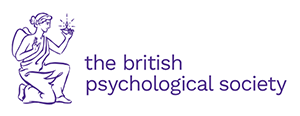Autistic people share two core features: difficulties with social communication and social interaction, and restricted patterns of behaviour, interests or activities. Autism is a neuro-developmental difference, so signs will be present in the early developmental period. Many parents and individuals may not become fully aware of the differences until social demands become higher and/or the individual is in a challenging setting or environment. Autistic people may experience the following:
Many autistic people develop strategies to interact with others, such as mimicking other people’s behaviour or mannerisms.
The most recently developed diagnostic system DSM-5 specifies Autism Spectrum Disorder and Social (pragmatic) Communication Disorder.
Pathological Demand Avoidance (PDA)
PDA is increasingly understood as a behaviour profile that is seen in some autistic people. People with this particular diagnostic profile are driven to avoid everyday demands and expectations to an extreme extent. This demand avoidant behaviour is rooted in an anxiety-based need to be in control. PDA is not a classification that can be diagnosed, but it can be helpful when diagnosticians specify if such a behavioural profile may be present.
Girls and Woman with Autism
There is an increasing understanding about the way that Autism manifests in girls and women, and how their ability to “mask” their differences can lead to them being overlooked. Girls may cope socially by observing their friends and mimicking their mannerisms and interests. They may appear compliant and shy to their teachers and family friends. They may have one special friend and struggle in larger groups. When the social world becomes more complex as they grow older, the differences may become more apparent or visible. Many girls and women “cope” with the day at school or work, and then release the tension in the safety of their home. Teachers and work colleagues may be confused to learn the different ways an autistic person behaves in different environments.
If you think that you or your child may be autistic, it may be worth considering an assessment. In some areas there are local NHS services that offer assessments, so we would advise you to speak to your GP in the first instance. If you wish to opt for a private assessment, please contact us by phone or email to find out more about starting the process.






The Autism and ADHD Service
The Marlowe Innovation Centre
Marlowe Way
Ramsgate
CT12 6FA
Copyright ©2026 The Autism and ADHD Service. All Rights Reserved